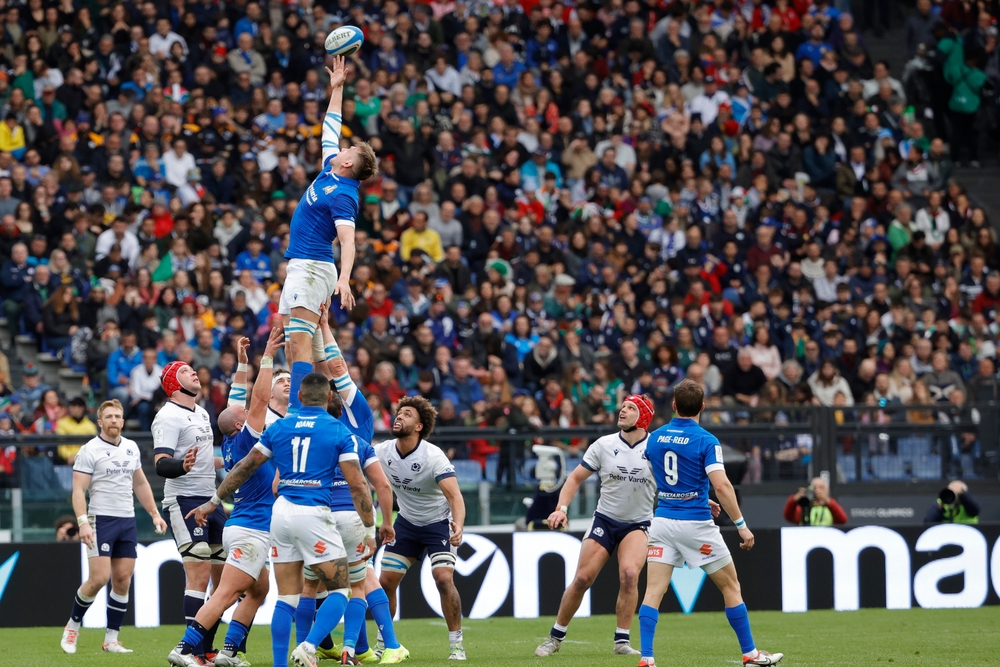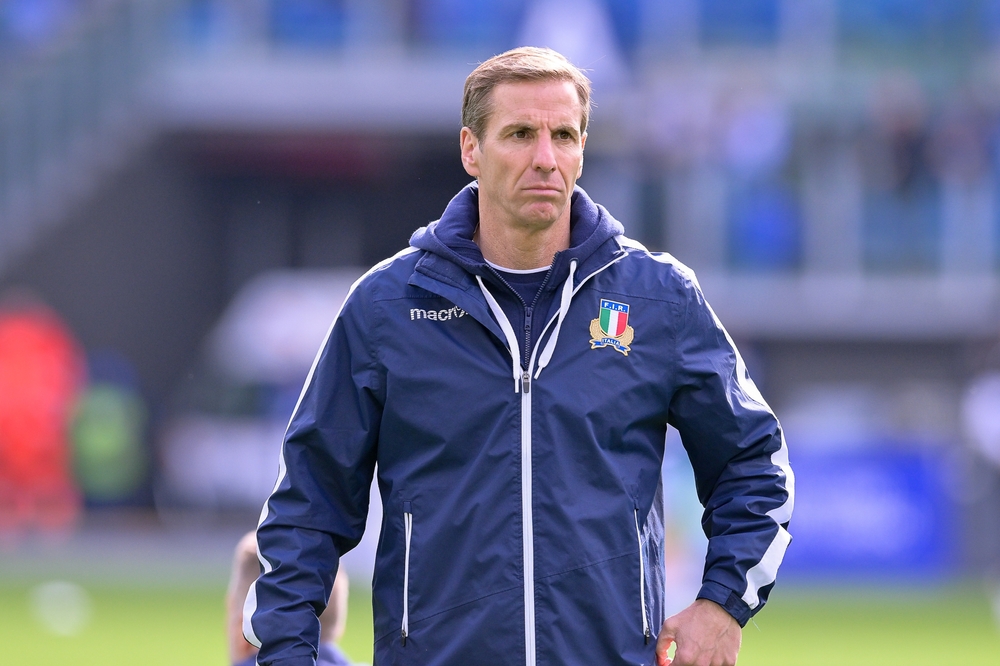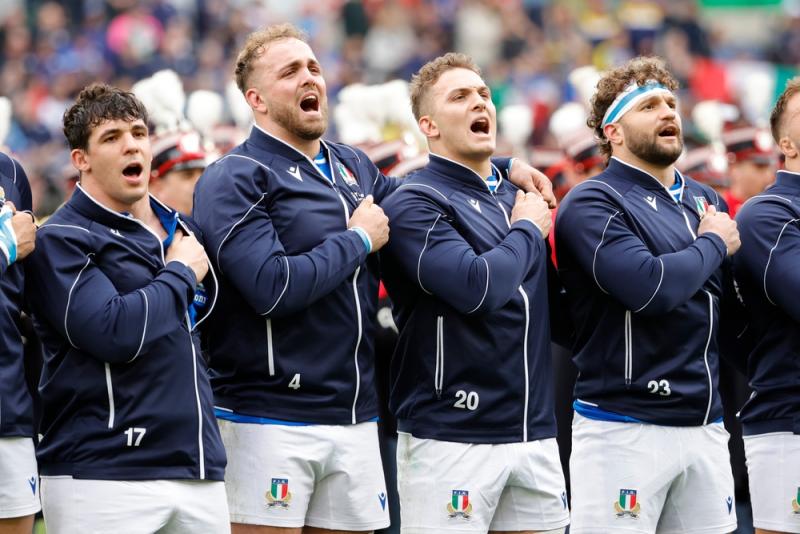A new era for Italian rugby may be on the horizon.
The Azzurri’s remarkable showing at the Six Nations 2024 tournament earlier in March, along with the steady improvement the squad has shown under the leadership of new head coach Gonzalo Quesada, has given fans reason to be optimistic.
Italy has been playing in the international rugby circuit since the late 1920s, but was only added to the roster of Six Nations with the original Five of England, France, Ireland, Scotland and Wales in 2000. Up until their recent winning streak, the “boys in blue” were widely seen as unserious compared to their peers — a perception all but confirmed by their bleak performance at the Rugby World Cup 2023. As recently as January, the Associated Press predicted that Italy would finish “last again” at the Six Nations 2024 tournament.
But in the span of just five months, the Azzurri have shown what BBC Sport called “a remarkable turnaround.” How’d they get here and where are they going? Let’s back up.
Ireland won the Six Nations 2024. Why the fuss about Italy?

Official World Rugby rankings placed Italy 12th internationally for much of 2023, but earlier this week the Azzurri shot back up to their previous record of eighth place, a slot they hadn’t reached since 2007. They also bested Wales in the lineup for the first time since 2013 after a decisive match in Cardiff.
In the very first match of the Six Nations back in February, the Azzurri pushed England to the brink, but as time ran out, they narrowly lost 27-24 in a squeaker.
They then faced off against Ireland, the defending champions, who ultimately were able to maintain their title in 2024. Italy stalled and subsequently suffered a 36-0 defeat.
Bouncing back from the loss in Dublin, Italy saw a dramatic 13-13 draw against France, which secured them a spot in the finals against Scotland.
It was back on the home front on March 9 where things took a history-altering turn. Before a packed house at Rome’s Stadio Olimpico — reportedly the first sold-out crowd in attendance since 2016 — the Azzurri would go on to clinch several other firsts: Their first win against Scotland since 2015, the first win on their own turf in 11 years and the first win under Quesada’s leadership.
Though the match started slow for Italy’s blue-jerseyed crew, “the gladiators” (as they are often referred to by fans) showed bruising determination. After leaving the pitch at the break behind 16-22, they came roaring back in the second half to come out on top and defeat Scotland 31-29 — thrilling the Roman crowd and earning the team the Cuttitta Cup (a silver trophy named for the late Massimo Cuttitta, a former Italian captain).
“I believe 100% this team can play games like this. We proved it [against France] and we proved it now,” Italy’s captain, Michele Lamaro, told reporters after the match. “We still have to improve a lot, but to bring back a win in Rome is unbelievable.”
In what may be a sign of increased institutional attention toward rugby in a nation consumed by calcio (soccer), Prime Minister Giorgia Meloni joined the team in the locker room to celebrate their victory (notably, on the eve of an important election in Abruzzo). Meloni and the team chanted “Po po po: gioia, Quesada, ‘squadra di pazzi’” (Joy, Quesada, ‘team of crazy people’).
After the squadra di pazzi defeated the Scots, they followed it up with another razor-close victory against the Welsh in Cardiff (24-21) on March 16. Up until then, the Welsh side hadn’t lost a match at home since 2003.
Who and what’s behind the growing success?

At least some of the credit for the team’s turnaround is owed to head coach Gonzalo Quesada, an Argentine who took over for New Zealander Kieran Crowley at the beginning of 2024.
Despite Italy’s uninspired showing at the Rugby World Cup in 2023, Quesada has spoken favorably of his predecessor and has suggested that it’s a shift in tactics that will help Italy reach its full potential.
“There’s been a lot of talk of ‘Italy’s attack,’” Quesada told Corriere della Sera, calling it “a strength” of the Azzurri. “But when we play against very strong teams we have to learn to attack even without the ball and, above all, to score points every time a chance arises. Scoring against Italy needs to become less easy.”
Italy’s young and talented standouts look poised to rise to the challenge. Captain Michele Lamaro, Paolo Garbisi, Juan Ignacio Brex, Tommaso Menoncello, Tommaso Allan, Ange Capuozzo and Monty loane are among the stars. Others receiving attention have included Lorenzo Pani, Federico Mori, Stephen Varney, Martin Page-Relo, Ross Vintcent and especially newcomer Louis Lynagh.
Lynagh, who grew up in England, was born in Treviso to an Italian mother and former world champion Australian rugby player Michael Lynagh. After playing as a star wing for the premier rugby club Harlequins, Lynagh was called up to an England training camp but was ultimately not chosen for the national team. Shortly thereafter, he announced his departure from the “Quins” and signed to play with the Benetton rugby club in his native Italy, where his father played between 1991 and 1996. Upon the news of the move, Lynagh was invited to join Italy’s Six Nations team by coach Quesada and went on to have what many news agencies called a “dream debut” at the Italy-Scotland match. Lynagh even joked to ITV reporters, “I may retire!”
Quesada won’t let that happen anytime soon. Reuters reported that the coach saw the victory as a “stepping stone to greater things.” Given Italy’s rise in the rankings, improved reputation among its peers and youthful makeup, greater things don’t seem too far off.













